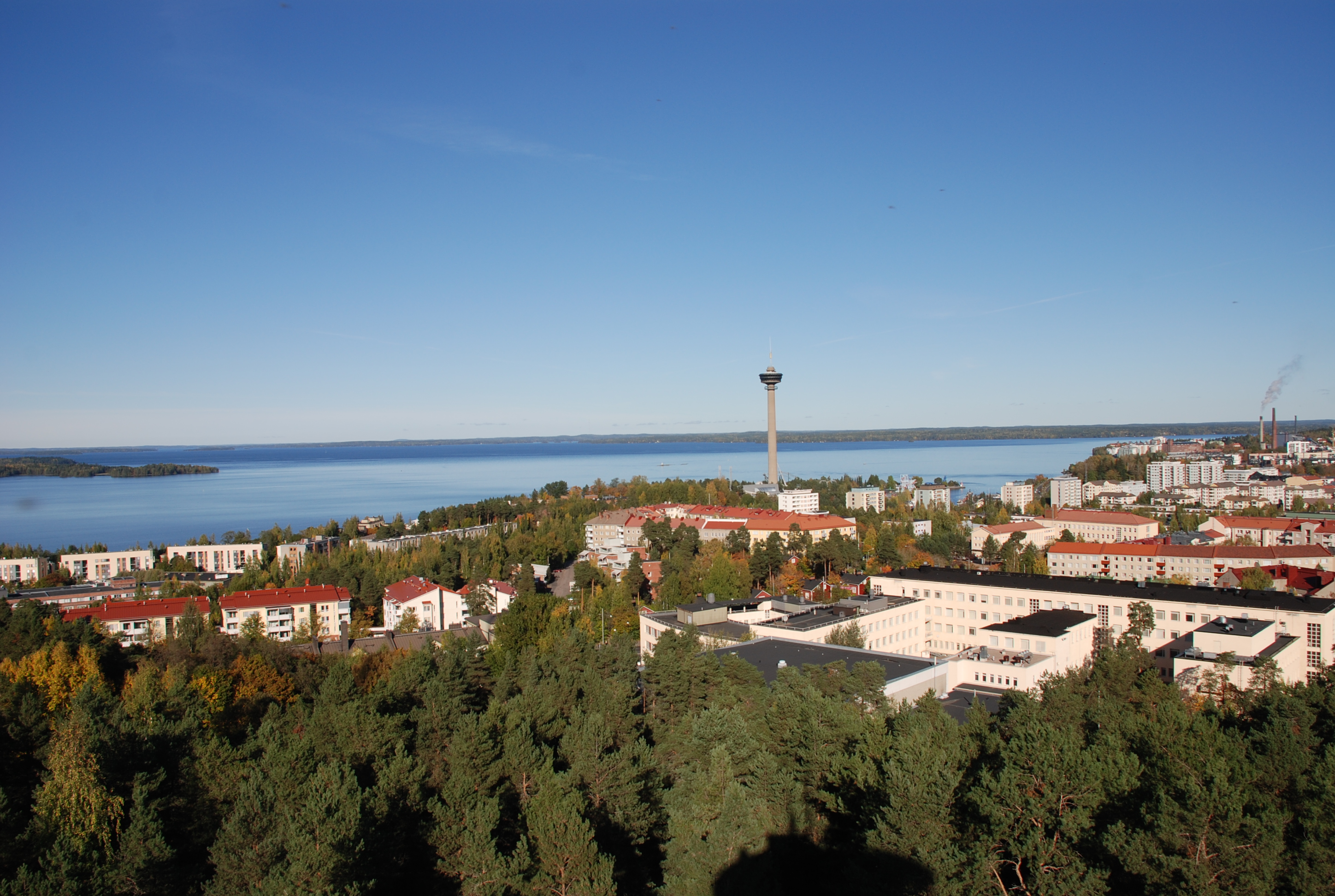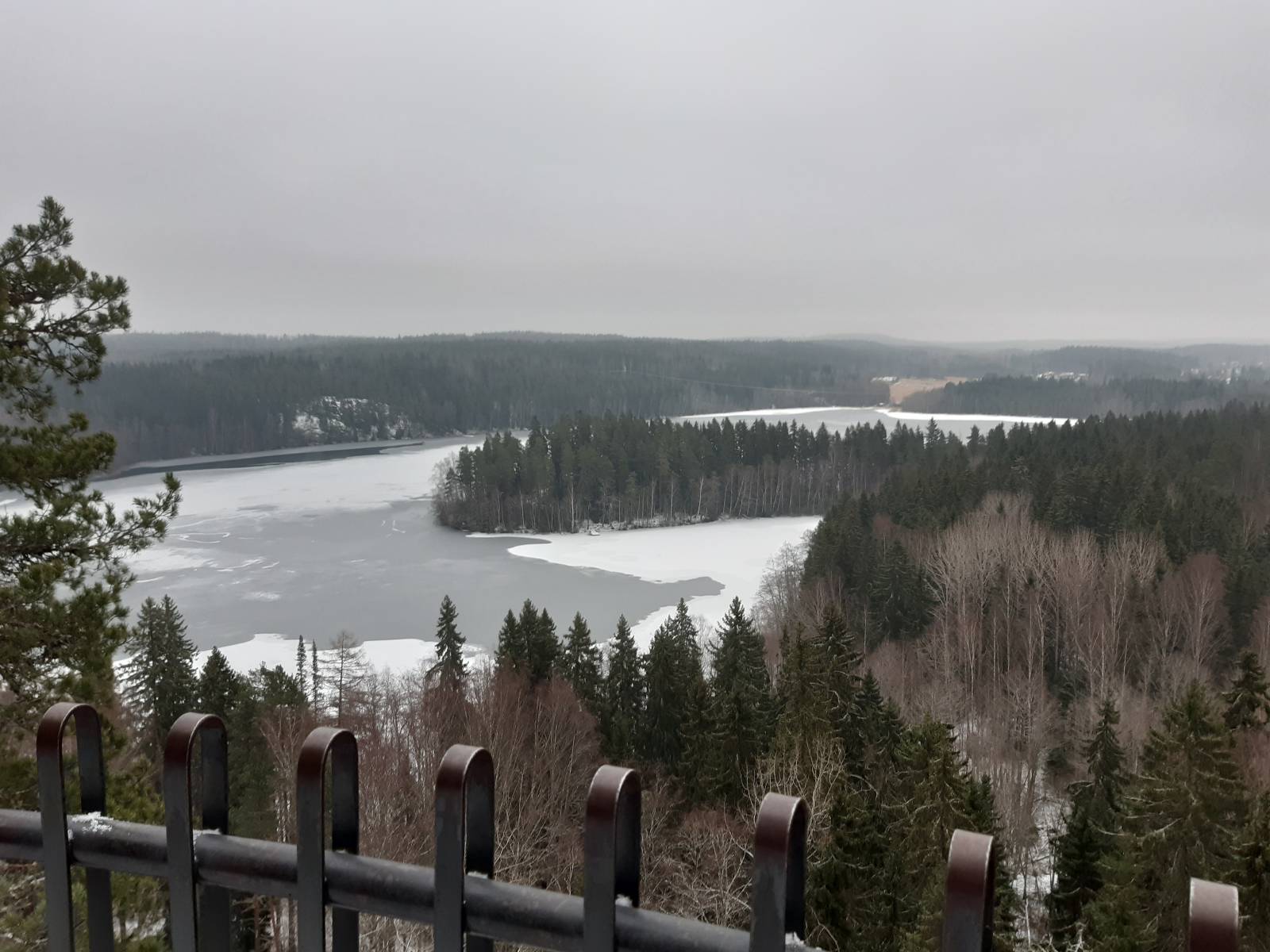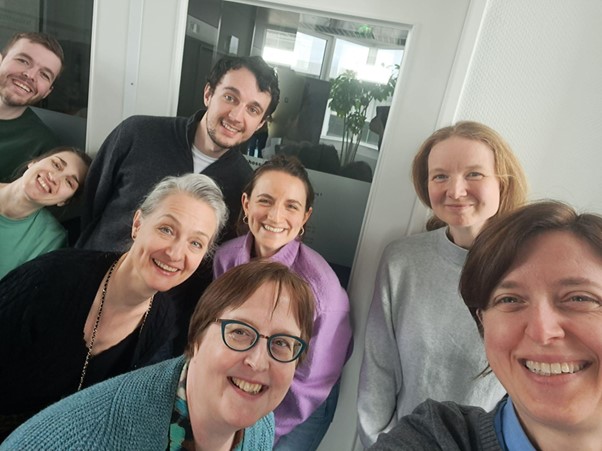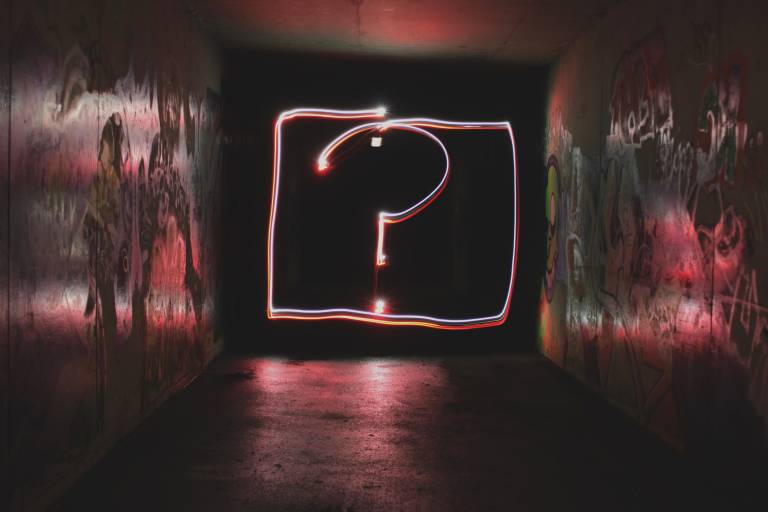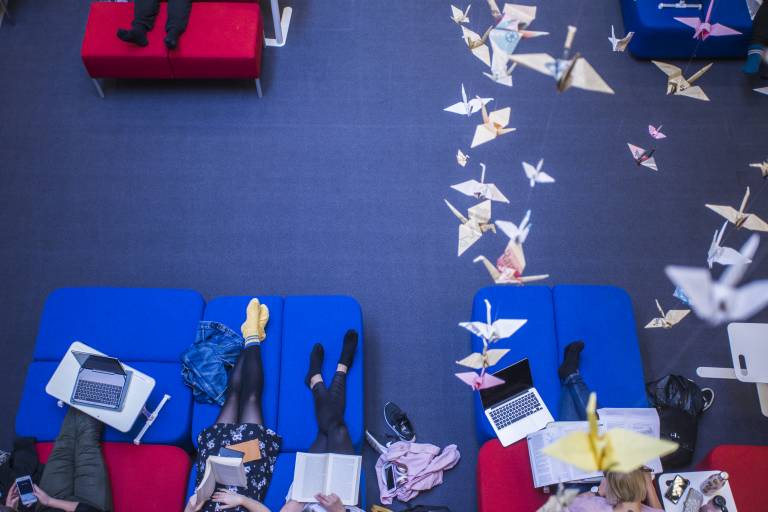Text: Eeva Kuikka and Airin Tegelman
An unexpected yet interesting message hit the inboxes of all Plural members in November 2020 – between the 14th and 16th of December, the research centre would be offering all PhD students and staff members of the Languages Unit an opportunity to participate in a writing retreat in Aulanko, Hämeenlinna. The goal of the retreat was simple: to work on individual research projects in an all-inclusive spa hotel, offering participants access not only to a peaceful work environment and facilitated writing exercises, but also a small getaway after a year filled with the trials and tribulations brought upon by COVID-19.
With the vacancies promptly claimed, a total of nine participants ultimately arrived in Aulanko in December, along with one remote participant and organizers Maija Hirvonen and Camilla Lindholm (the latter of whom also attended via a remote connection). During the very first get-together, it quickly became clear how much need there had been for such an event: while all of us are familiar with the realities of independent research, the pandemic has also forced everyone to cope with new circumstances such as cramped home offices, alternative work routines, and limited face to face contact with our colleagues. To all of this, the retreat was seen as a more than welcome break.
Working during the retreat
The daily schedule for the retreat was neatly organized with multiple breaks during and after the writing sessions. Each morning the group would gather after breakfast at 9 a.m., joining Camilla in the conference room to process the mood and goals of the day; before moving on to actual research, Camilla would also facilitate a free-form writing exercise, which alleviated the fear and pressure of getting started. At noon everyone would take a two-hour lunch break, during which they could enjoy a walk or run in the beautiful Aulanko grounds or spend some extra time chatting with other researchers; well-fed and refreshed, they would then return for the second writing session at two p.m. This would last until five p.m. with a short coffee break in-between, after which Camilla would once again conduct a short discussion round on everyone’s accomplishments and thoughts of the day.

Although the pandemic has forced everyone to adapt to new ways of working, each participant had arrived with individual work challenges to navigate. Many were working on their doctoral theses, while some had already finished their PhD; some did research full-time while others managed their schedule with other work-related duties. While issues related to work environment (such as the lack of proper office space) were seen as particular research roadblocks, many also found issue with their personal writing process: the multifaceted nature of academic writing could often result in disorganized, overflowing text and a tendency to stumble into distracting “rabbit holes.” Some had also found it difficult to focus on the writing itself, spending too much time editing and re-structuring unfinished text instead.
As a way of tackling these challenges, the facilitated sessions were considered a specifically useful tool. Not only did progressively transitioning to work help participants to better focus on the task at hand, but mandatory breaks were also seen as a “permission” to take a short breather, allowing the mind and body to recharge. Working in a shared environment was also perceived as a positive form of peer pressure, further boosting morale and concentration. As such, many came to discover that clear, realistic goals could be accomplished in less time, while listing the day’s accomplishments was a concrete reminder of progress. In fact, the retreat in general proved that not all work is measured through word counts – other forms, such as reading, mind-mapping, note-taking, and even breaks are an equally integral part of productivity.
Beyond the work
In addition to working on research, the retreat experience was influenced by a host of other factors. The COVID-19 situation had narrowed the number of participants down to ten, with face masks worn in public spaces and the conference room. Due to the pandemic, the spa hotel itself was also mostly empty, with ample space during breakfast, lunch, and dinner; these were naturally served as part of the all-included package in addition to coffee and snacks during breaks. Many participants particularly enjoyed the three-course dinners, during which everyone could mingle better with the rest of the group. For those interested in the spa, much time was also provided in the schedule to enjoy the pool and sauna services of the hotel.
Besides providing a relaxing environment to work in, the social dimension was generally seen as a particular highlight of the retreat. Discussions waged over lunch, writing sessions, or even while out on a walk provided great opportunities to exchange thoughts and feelings about life in research. With participants hailing from many different expertises and stages of language studies, the retreat thus allowed for unique interaction among colleagues. On the final day, the group was also treated to a special remote presentation by Camilla Lindholm and Johanna Isosävi, who focused on the topic of an academic career; utilizing their book Väitöksen jälkeen – Opas akateemiselle uralle, they discussed the many paths available to a researcher after finishing their PhD.
The retreat in a nutshell
Overall the entire retreat was deemed a great success. Based on the feedback, not only did the participants benefit from a getaway during these unusual times, but the event also helped establish various tools for personal research all around. Unsurprisingly, many later expressed a desire to participate in similar events in the future; as a direct result of this, Plural has now begun to remotely facilitate writing groups for the Spring of 2021, with many familiar faces returning to the first session hosted by Camilla.
Some of the most important epiphanies from the retreat in a nutshell:
- Redefining and maintaining productivity
- Finding tools to structure the day
- Redefining oneself as a researcher
- The importance of social connections even over independent work, especially during COVID-19
- Productivity boosts with breaks

